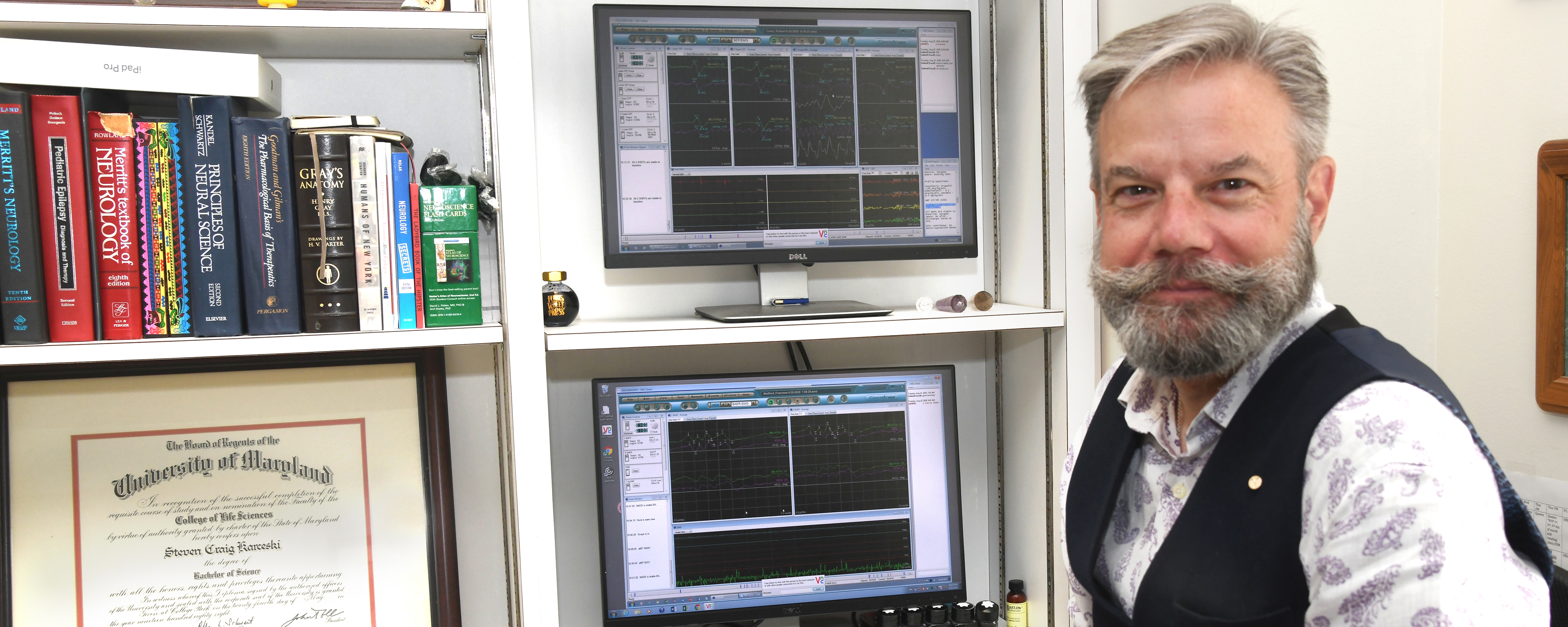The Adult epilepsy fellowship is a 2-year fellowship where trainees do a clinical neurophysiology fellowship (Adult EEG Track) in the first year, followed by adult epilepsy fellowship in the second year. Both fellowships are ACGME accredited, leading to eligibility to take both the clinical neurophysiology board and the epilepsy board. Both are ABPN (American Board of Psychiatry and Neurology) board certification recognized by both ACGME and ABMS (American Board of Medical Specialties).
Please note we only offer adult epilepsy fellowship, we do not currently offer pediatric epilepsy fellowship.
Details
The Epilepsy Fellowship builds upon the first year of fellowship (clinical neurophysiology) to increase exposure to complex epilepsy cases that often lead to epilepsy surgery. At this point, fellows have familiarity with neurophysiology testing and are ready to delve into advanced topics in depth. The epilepsy fellows have increased outpatient clinical exposure and a separate didactic schedule. The epilepsy fellow is prioritized when it comes to exposure to advanced epilepsy cases. All training during the epilepsy fellowship will take place at NewYork-Presbyterian/Weill Cornell Medical Center.
Epilepsy fellow will continue to have broad exposure to routine adult and pediatric EEGs, long-term video EEG monitoring (both in the epilepsy monitoring unit and ICU setting), and intracranial surgical monitoring with subdural grids/strips/depth electrodes and stereotactic EEG. In addition, fellows are involved with the latest techniques in Responsive Nerve Stimulation (RNS), Vagus Nerve Stimulation (VNS), Deep Brain Stimulation (DBS), and Laser Guided Thermal Ablation for Epilepsy. We also have an active ketogenic and adjunctive dietary treatment program for Epilepsy.
Fellows are directly involved with all aspects of pre-surgical epilepsy workup including Wada testing and cortical brain mapping. Trainees also rotate through the pediatric epilepsy monitoring unit for broad exposure to pediatric syndromes and surgical management. In addition to inpatient training, all trainees also see their own patients in weekly Epilepsy clinic with exposure to a medically refractory epilepsy population.
Trainees further refine their clinical management skills by presenting complex medical or surgical epilepsy cases at a multidisciplinary conference with the guidance of supervising faculty. Fellows learn to appraise and assimilate all diagnostic testing including electrographic data, specialty imaging, and neuro-psychologic data. In addition to Epilepsy didactic lectures from faculty, fellows participate in monthly journal club and monthly neuroradiology rounds.
Epilepsy fellows also have one month of dedicated elective time and are encouraged to pursue individual research projects or gain additional experience in the care of patients with epilepsy and seizures, epilepsy research, neuropsychology, or neuroimaging.
In preparation for a potential career in academics and leadership, epilepsy fellows will take on a more senior role being they are second-year fellows. They will be involved in teaching and mentoring the junior fellows. In addition, epilepsy fellows are expected to partake in resident/medical student education including giving lectures and going over continuous EEGs during morning report.
Application Information
Applicants must have completed an ACGME-approved residency in Neurology at the time of entrance into the program (typically July 1), and must be board-eligible in the Neurology section of the American Board of Psychiatry and Neurology. Applications must be made through the AAMC Electronic Residency Application Service https://www.aamc.org/services/eras-for-institutions/program-staff(ERAS). Fellowship positions are selected through the National Resident Matching Program https://www.nrmp.org/fellowship-applicants/participating-fellowships/epi... (NRMP). Please note, this is a 2 year fellowship.
Contact Info
Please send questions to the program director as listed below.
Epilepsy Fellowship:
David Chuang, MD


